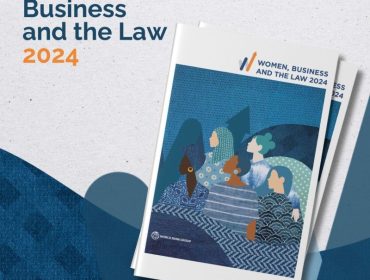
Crowdfunding the solution for SMEs?
March 17th, 2017 – In 2015, the South African Institute of Chartered Accountants (Saica) published the Small and Medium Enterprises (SMEs) Insights Report. The report provided meaningful insight into the depressed economic environment stifling SME growth and explored ways to improve opportunities for SMEs in South Africa. The report identified the greatest obstacle to the successful operation of sustainable and profitable SMEs as inadequate access to finance. This ultimately leads to cash-flow related problems, which are believed to be the prevailing reason for the failure of SMEs.
Traditional financial institutions are generally reluctant to serve SMEs due to the high costs associated when assessing these businesses, their volatile balance sheets and the inherent high risks involved with start-up companies1. This lack of financing for SMEs has exposed a gap in the South African lending and borrowing market, and has encouraged development in the sphere of social lending, also known as crowdfunding. Crowdfunding is an unconventional alternative method of raising capital from a large group of people by way of an online marketplace lending platform2.
Online marketplace lending in South Africa is becoming an increasingly popular alternative to traditional financial institutions3, which for years dominated the lending and borrowing market with high interest rates, rigorous red tape, excessive bank charges and inflexible attitudes. Social lending is revolutionising the manner in which SMEs and conventional corporate citizens access funding and it is disrupting traditional understanding of how money is lent and borrowed. Crowdfunding eliminates the need for traditional financial institutions in the context of SMEs and provides consumers with a convenient and flexible online funding platform that offers competitive interest rates, low fees and charges, and advantageous terms and conditions.
Launched in 2012 as the first online marketplace lending platform in South Africa, Rainfin Proprietary Limited (RainFin) has experienced rapid growth and popularity due to its ability to match borrowers directly with lenders. This eliminates the need for a middleman and produces favourable interest rates for borrowers and attractive returns for investors. Initially, RainFin was primarily focused on granting personal loans to consumers in South Africa, but the platform’s focus has gradually shifted towards providing financing to small businesses in the SME sector – a relatively untouched lending market in South Africa.
Due to low operating costs, flexibility (to work within demanding deadlines), low interest rates and the high probability of obtaining funding, crowdfunding platforms are better placed than traditional financial institutions to tap into the domain of SMEs. High loan-origination costs, interest rates and other related expenses have made conventional funding methods unattractive and outdated. It is not hard to understand the appeal for SMEs to approach lending platforms when traditional financial institutions have made it almost impossible for SMEs to survive.
Crowdfunding is gaining popularity and momentum due to its ability to strike a successful balance between lowering the cost of loans and compensating investors for investing in high-risk small businesses. An example of this successful balancing act is evident in the RainFin platform, which has lent approximately R140m to approximately 340 SMEs, with an average loan size of less than R500 000.
However, despite the popularity and growth of these crowdfunding platforms in South Africa, they are not free of burdens and restrictions. The National Credit Act 34 of 2005 (NCA) previously allowed an individual to lend up to R500 000 to another individual without being registered as a credit provider. However, due to concerns in the unsecured lending market, the Minister of Trade and Industry has determined the new threshold amount for registration as a credit provider under the NCA to be zero rand. Accordingly, any person who lends any amount will be required to be registered as a credit provider under the NCA. This requirement to register as a credit provider on the crowdfunding platform will, without a doubt, discourage investors from lending money to SMEs.
A further limitation facing small businesses is the restriction, under the NCA, that if a business has a turnover of less than R1m, it will be treated as an individual when borrowing money. The RainFin platform stipulates that all individuals are limited to borrowing a maximum personal loan amount of R100 000. Individuals who are seeking to raise capital or loans to sustain their businesses could, as a result of the restrictions, inevitably experience cash-flow related problems and potential business failure. Furthermore, investors may have little interest in investing in such individuals due to the high risk involved with such start-up companies.
Despite the restrictions being placed on the unsecured lending market, it seems that the beauty of crowdfunding is that it enables investors to predetermine their exposure to risk when lending to high-risk SMEs and individuals, in that a group of lenders are able to divide their exposure to the risk in respect of one funding transaction. The effect is that the risk exposure is spread across a greater base and these lenders are more inclined to lend to high-risk SMEs and individuals.
Crowdfunding platforms further encourage investors to invest in high-risk SMEs and individuals by providing a higher return for the investor when the risk of the loan defaulting is higher . However, the most appealing part of crowdfunding may lie in the tax incentive under section 12J of the Income Tax Act 58 of 1962. Section 12J allows investors in a South African Revenue Service registered venture capital com-pany a 100% tax deduction for their investment.
The success of SMEs in South Africa remains key in promoting economic growth and job creation. The establishment of crowdfunding platforms has introduced a marketplace for greater access to funding for SMEs, has allowed credit to become affordable and is facilitating the growth and sustainability of SMEs in South Africa. The Afrikstart “Crowdfunding in Africa” report documented that Africa is home to over 57 active crowdfunding platforms, with projects raising over $126,9m in 2015 and $17,7m of that total being used towards investing in start-up initiatives and SMEs. The rise in active crowdfunding platforms in Africa is confirmation that SMEs are breaking the conventional barriers of the financial and banking sector, and embracing alternative sources of accessing financial resources.
Written by Moneyweb
Photo: Moneyweb
https://www.moneyweb.co.za/news/industry/crowdfunding-the-solution-for-smes/
Related Post
Digital Entrepreneurship in Africa
Africa’s progress in entrepreneurship, digital innovation, and its young population lays a solid foundation for achieving the United N...
Women, Business and the Law 2024:...
Women, Business and the Law 2024 This year’s report, the 10th in the series, finds that women worldwide continue to have fewer legal r...
European Commission launched AI innovation package...
On 24 January, the Commission has launched a package of measures to support European startups and SMEs in the development of trustworthy Art...




